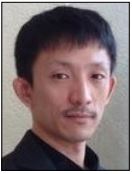Date
Location
Research 1: R1-101
Description
Porous materials with a sufficiently exposed surface associated with abundant active sites for electrochemical reactions have been identified as efficient electrodes for water splitting and rechargeable batteries. Conventional porous electrode powders may deactivate during long-term utilization when carbonaceous additives are added to prepare electrodes. Here, we developed a facile and simple route to prepare self-organized metal compound porous films without any additives as electrodes for water splitting and battery applications. The exposed active sites and interconnected porous structure makes these porous films deliver excellent electrochemical activities with long-term durability. This nanoscale engineering fabrication approach to tailor the activity of thin-films opens a new direction in designing efficient electrode for renewable energy applications.
Biography: Dr. Yang Yang received his Ph.D. from Tsinghua University in 2010. From 2010 to 2012, he was supported by the Alexander von Humboldt Postdoctoral Fellowship and worked at the University of Erlangen-Nuremberg. From 2012 to 2015, he was supported by the Peter M. & Ruth L. Nicholas Postdoctoral Fellowship and worked at Rice University. Since 2015, he has been an assistant professor at the University of Central Florida. His research group is dedicated to developing transformative thin-film technologies for renewable energy generation and storage, solar energy harvesting, and smart/flexible electronics applications. His current research emphasizes the following projects: a) freestanding thin-film electrodes for rechargeable batteries; b) advanced electrocatalysts for renewable energy generation; c) plasmonic photocatalysts for solar energy harvesting.
Presenter

Yang Yang, Ph.D.
NanoScience Technology Center
Materials Science & Engineering
University of Central Florida
Contact
Yujun Huang NanoScience Technology Center 407-823-3496 Yujun.Huang@ucf.edu